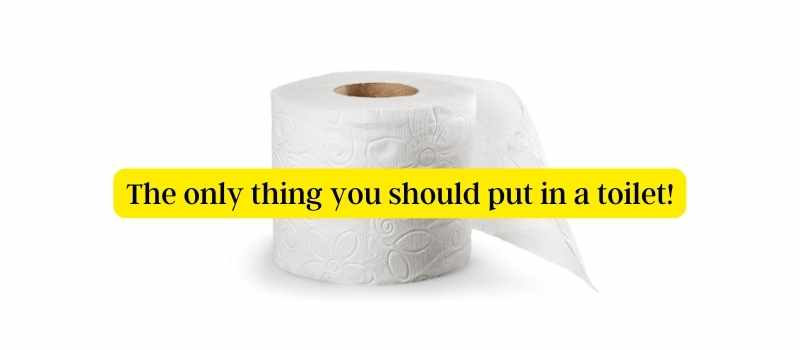Palm Coast Local
Locals Helping Locals

Items to never throw down the toilet, even if it says it's OK.
- Details
- Written by: Managano Plumbing Services
- Parent Category: Business Blog
- Category: Home Maintenance & Repairs

Clogs and Blockages: Items that don't dissolve or break down easily, such as paper towels, sanitary products, dental floss, and non-flushable wipes, can accumulate in your pipes and cause clogs. These clogs can disrupt the flow of water and waste, leading to slow draining toilets and backups.
Pipe Damage: Certain products, like cleaning wipes or items with sharp edges, can cause physical damage to your pipes as they pass through. Over time, this can weaken the pipes, leading to leaks and potential water damage.
Septic System Issues: If you're on a septic system, flushing inappropriate items can disrupt the natural balance of bacteria that break down waste. Non-biodegradable items can accumulate in the septic tank, leading to a reduced capacity for waste processing and potential system failure.
Environmental Impact: Flushing non-biodegradable items down the toilet can contribute to environmental pollution. These items might end up in water bodies and harm aquatic life, as well as negatively impact water quality.
Expensive Repairs: Dealing with clogs, pipe damage, and septic system failures can be costly. Professional plumbing services and potential replacement of damaged pipes or septic system components can lead to significant expenses.

As an experienced plumber, I can tell you even if the label says "Safe for Flush", it's not. These item are not meant to be flushed and can cause serious back up and harm to any system and PIP tanks are no exception.
-
Baby Wipes and Wet Wipes: Even if they are labeled as "flushable," these wipes do not break down like toilet paper and can cause clogs.
-
Facial Tissues and Paper Towels: These are designed to be more durable than toilet paper and can easily cause clogs in your plumbing.
-
Feminine Hygiene Products: Tampons, pads, and liners should not be flushed down the toilet as they can expand and cause blockages.
-
Cotton Balls and Swabs: These do not break down in water and can accumulate in your pipes.
-
Diapers: Diapers are not designed to break down in water and can cause major blockages.
-
Dental Floss: Dental floss is thin and can wrap around other debris in the pipes, contributing to clogs.
-
Medications: Flushing medications can contaminate water sources and harm the environment.
-
Hair: Hair can accumulate and combine with other substances to create clogs.
-
Condoms: Condoms are not biodegradable and can easily cause blockages.
-
Cooking Grease and Oil: Pouring grease down the toilet or drain can lead to clogs when it solidifies.
-
Household Chemicals: Chemicals like paint, cleaning solutions, and other hazardous materials can harm the environment and your plumbing.
-
Cat Litter: Even if labeled as flushable, cat litter can create clumps that clog pipes.
-
Plastic, Rubber, and Metal: Items made from these materials can cause significant blockages and damage to pipes.
- Coffee Grounds: Do not dissolve nor breakdown leading to a blockage or clog.
Remember, the only things that should be flushed down the toilet are human waste and toilet paper. Everything else should be disposed of in the trash or according to proper disposal methods for each specific item. Proper disposal not only helps to prevent plumbing issues but also protects the environment and your community's wastewater treatment systems.
Do you have other helpful tips? Share it with us in the comments,
Add comment